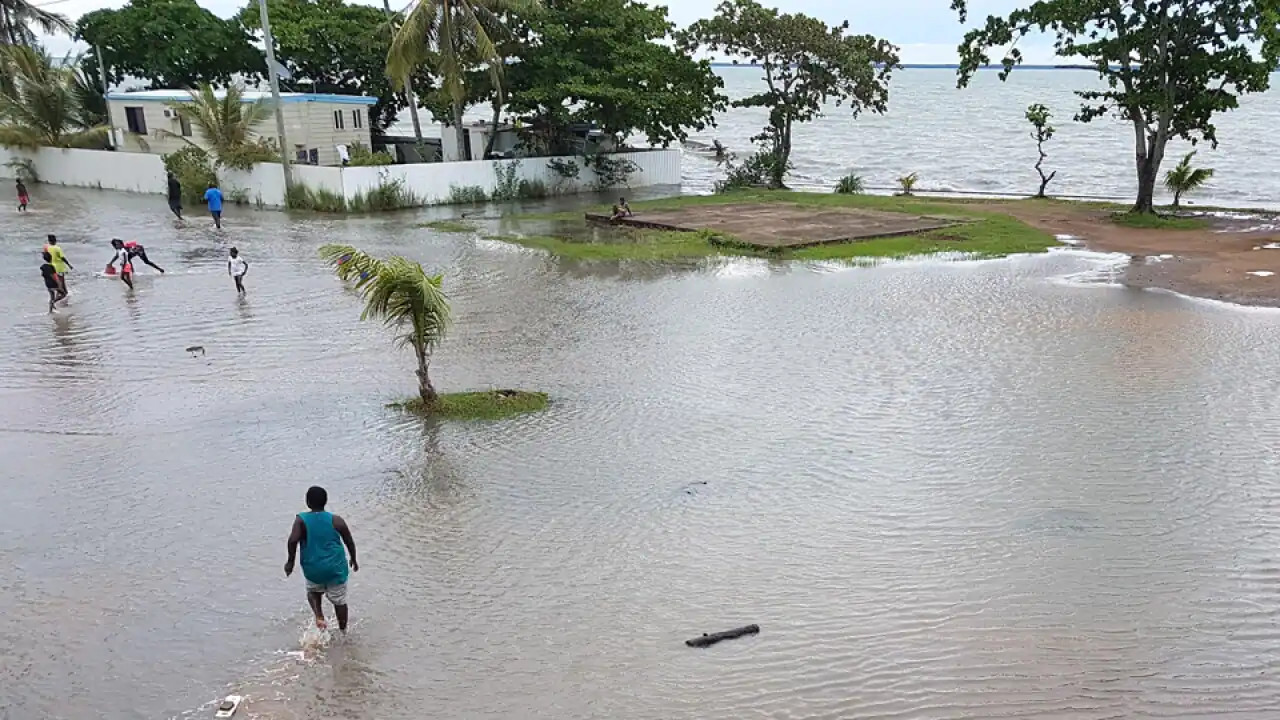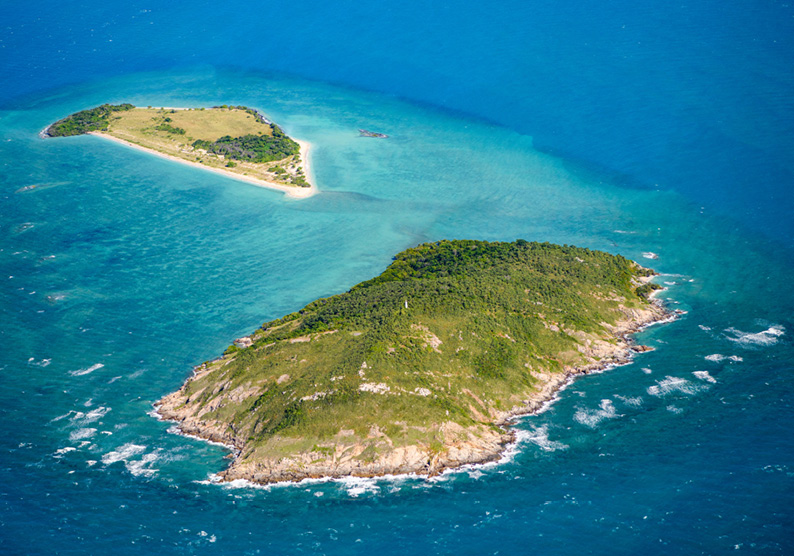
Billy et al. v Australia (HRC, 2022)
Violations: ICCPR art 17, ICCPR art 27
 Partially remedied
Partially remedied
The UN says:
HRC (2022)[Australia] is under an obligation to provide the authors with an effective remedy. This requires it to make full reparation to individuals whose Covenant rights have been violated. Accordingly, [Australia] is obligated, inter alia, to:
- provide adequate compensation to the authors for the harm that they have suffered;
- engage in meaningful consultations with the authors’ communities in order to conduct needs assessments;
- continue its implementation of measures necessary to secure the communities’ continued safe existence on their respective islands; and
- monitor and review the effectiveness of the measures implemented and resolve any deficiencies as soon as practicable.
[Australia] is also under an obligation to take steps to prevent similar violations in the future.

Rising sea levels have damaged food sources and ancestral burial sites, scattering human remains (image: supplied to SBS News, 2022)
The authors are eight Torres Strait Islanders (dubbed the ‘Torres Strait 8’) plus 6 of their children who live on the low-lying Australian islands of Boigu, Masig, Warraber and Poruma. According to the Torres Strait Regional Authority, a government body, the people on these islands are among the most vulnerable to the impacts of climate change, with even small increases in sea level having an immense impact.
The authors claim that Australia violated their rights under article 2, read alone and in conjunction with articles 6, 17 and 27 of the International Covenant on Civil and Political Rights (ICCPR); as well as articles 6, 17 and 27 each read alone. These articles refer to respect for the rights of all individuals within a nation-state’s territory without discrimination, and providing effective remedies in the event of a violation (article 2), as well as the right to life (article 6), to privacy, family and home (article 17) and minorities’ cultural rights (article 27).
Also claimed are violations of the rights of 6 children of the authors under article 24(1) (discrimination against children) read alone and in conjunction with articles 6, 17 and 27.
It was alleged that Australia failed to adopt infrastructure to protect the authors’ lifestyles and community from the impacts of climate change, as well as failing to reduce greenhouse gas emissions. In particular, the authors claimed that severe flooding and other changes in weather patterns destroyed graves and impacted the ability to conduct spiritual ceremonies.
Australia maintained that the authors’ allegations represent impacts of climate change, but not existing or imminent violations of Covenant rights caused by the State party by either act or omission. Furthermore, Australia claimed that the international community has sought to address climate change primarily as a matter of international cooperation.
While the Committee noted that climate change could violate the right to life (article 6), it failed to find a violation in this instance.
The Committee found that the ways in which the claimants have been adversely affected by flooding of their villages, destruction of traditional gardens through flooding or seawater ingress and the decline of marine species constituted a breach of article 17 (interference with home and family).
Additionally, the reduced habitability of the islands and surrounding seas owing to climate change , and Australia’s failure to adopt timely and adequate measures to protect the authors’ traditional way of life constituted a violation of article 27. Having found violations of articles 17 and 27, the Committee did not consider the remaining claims under article 24(1).
Pursuant to article 2(3)(a) of the ICCPR, the UN Committee held that Australia is obliged to provide an effective remedy, being full reparations, engaging in meaningful consultations with affected communities to assess their needs and to secure the communities’ safe existence on their respective islands. The Committee requested that Australia respond to its final views within 180 days.
Australia's Attorney-General Mark Dreyfus noted the UN complaint was initiated in 2019, when the conservative Coalition was in government.
“Soon after the change of government, the Prime Minister, the Minister for Indigenous Australians and the Minister for Climate Change and Energy travelled to the Torres Strait to talk with elders and owners about the impacts of climate change on them," he said.
Mr Dreyfus claimed "the Australian Government engages in good faith with the Human Rights Committee in relation to any complaint received," and said his government would respond to the Committee's findings "in due course". (SBS News, 23 September 2022; See Remedy Australia's 'Media' page for more coverage of this landmark case.)
The 'Torres Strait 8' remain opposed to the Australian government’s continuing to approve new fossil fuel projects and still seek government assistance to transition to clean energy and fund seawalls.
Take action now: Write to the Minister for Climate Change asking him to increase funding for sea walls.
Read the full decision: Billy et al. v Australia (July 2022)

'Billy et al. v Australia' concerns 4 small, low-lying islands in Australia's Torres Strait: Boigu, Poruma, Warraber & Masig (image: Law Society Journal online)